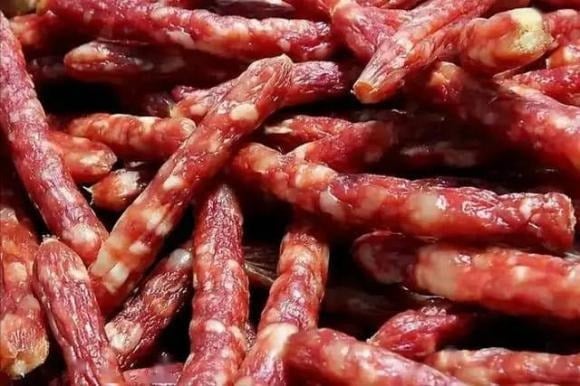Have you ever wondered why some older adults age healthily and gracefully, while others, despite being vibrant in their youth, succumb to illnesses in their golden years or even pass away prematurely?
Over the years of working in the hospital, I’ve witnessed countless heartwarming cases.
Many people wonder about the secrets to longevity and healthy aging.
Especially those who are over 85 or even 90 years old, what do they eat? Do they have any common dietary habits?
High GI Foods
Many seniors avoid or never eat foods with a high glycemic index (GI). This may come as a surprise as high GI foods tend to look more appealing and indulgent.
However, it’s not that simple. The defining feature of high GI foods is their ability to rapidly increase blood sugar levels, prompting the body to produce insulin. Prolonged blood sugar spikes, especially the overproduction of insulin when blood sugar is high, not only increase the risk of diabetes but can also accelerate the aging process.

I recall a middle-aged woman, a longtime nurse at the hospital. She shared that her mother lived to be 92, healthy and almost free of chronic illnesses. Remarkably, her mother’s diet was simple; she rarely ate refined sugar and almost never drank sugary beverages.
In fact, high GI foods are directly linked to the rate of aging and the onset of certain chronic illnesses in the elderly. Thus, minimizing high GI foods helps control blood sugar and contributes to slowing down aging.
White bread, desserts, and processed foods often contain excessive amounts of sugar. If you eat these foods daily, the blood sugar spikes will cause long-term damage to your blood vessels, and issues such as atherosclerosis or diabetes will easily develop.
Consuming too many high GI foods will burden the elderly’s body, affecting their quality of life.
Processed Meat
Another “silent killer” that can undermine the health of the elderly is processed meat.
Processed meats like sausages, bacon, and ham typically contain high levels of salt, additives, and preservatives. When consumed by the elderly over extended periods, these meats can lead not only to high blood pressure but also an increased risk of heart disease and stroke.
I once met an elderly gentleman who ate fast food almost all year round. He was obese, had high blood pressure, and suffered from diabetes. He told me there was one item in his diet that he couldn’t resist—processed meat.

“Sausages can be a meal, so why not eat them?” he said.
However, the risks of processed meat cannot be overlooked. Numerous studies have shown that long-term consumption of these meat products makes the elderly more susceptible to cardiovascular diseases, as the salt and saturated fat content constricts blood vessels and raises blood pressure. Moreover, some chemicals in these meats can have negative long-term effects on the immune system.
These impacts often become apparent as people age. Many elderly patients presented with severe cases of hypertension and diabetes when they were admitted to the hospital.
Dairy Overload
Dairy products have long been regarded as an important source of calcium, but that doesn’t mean they suit everyone.
Particularly for some seniors, excessive dairy consumption can negatively impact bone health. The reason lies in the potential disruption of the body’s acid-base balance and the increased accumulation of acidic substances when consuming too much dairy, prompting bones to release calcium to neutralize these substances, thus accelerating osteoporosis.
I once treated an elderly lady who drank a lot of milk for many years. She believed that milk was a way to supplement calcium until a bone density test revealed her bones had become very brittle. I had to inform her that her risk of bone fractures had significantly increased.
She was surprised to learn that dairy products aren’t always bone-friendly as she had assumed. Research indicates that excessive dairy consumption can be detrimental to some seniors. While calcium benefits bones, the combination of excessive lactose and protein results in reduced calcium absorption, accelerating osteoporosis.
Therefore, the elderly should be cautious when choosing calcium supplements, as dairy may not suit everyone.
Refined Cereals
Refined cereals are another group of foods that many seniors avoid. Refined cereals like white rice, white flour, and instant noodles usually offer low nutritional value and lack fiber, essential vitamins, and minerals.
Refined foods can cause rapid spikes in blood sugar, and prolonged consumption can lead to not only weight gain but also metabolic disorders, resulting in diseases such as diabetes, heart disease, and stroke.
I once met a retired gentleman who used to work in construction. In his younger years, he worked hard, but later he changed his diet, giving up white rice and white noodles in favor of whole grains or mixed grain products.
This habit persisted for many years, and at the age of 85, he remained healthy, free from diabetes or cardiovascular issues. His bloodwork showed normal results, especially stable blood sugar levels.
His secret was avoiding refined cereals and opting for natural, fiber-rich foods. Scientific research also indicates that refined cereal consumption can lead to nutritional deficiencies, particularly fiber, vitamin B, and mineral deficiencies, adversely affecting gut health and increasing the risk of cardiovascular disease.
Since gut health and the immune system are closely linked in the elderly, they should opt for fiber-rich foods like whole grains, brown rice, and oatmeal as much as possible.
These seemingly ordinary foods can accumulate into “invisible threats” to the health of the elderly, and their effects often insidiously impact the body when we least expect it. For those who age gracefully, the foods they avoid may be healthier than what we typically consume.
The Magic Brew: How Coffee Holds the Secret to a Long and Youthful Life for Women Over 45
As women age, their bodies undergo noticeable changes, especially after the age of 45. But did you know that a simple habit of drinking 2-3 cups of coffee daily can help you stay healthy, vibrant, and youthful? Science has proven this easy yet effective trick to be a powerful ally in maintaining your well-being and reversing the signs of aging.
Why Red Meat May Be Bad For Your Health
Red meats such as beef and pork are excellent sources of vitamin B12, iron, high-quality protein, and zinc. However, they also contain high levels of saturated fat and cholesterol, which can have negative effects on your health and that of your family. Additionally, cooking meats at high temperatures can also be detrimental to your well-being.





































